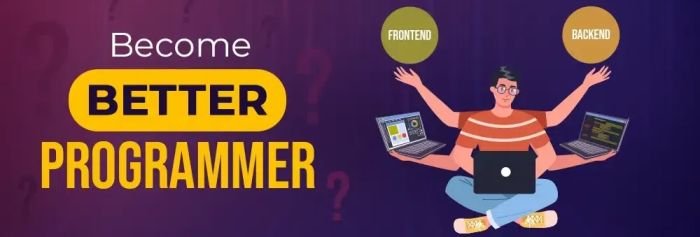
How to become beat programmer-In the rapidly growing field of technology, programming stands as the backbone, enabling the creation of software solutions that have revolutionized our modern world. For beginners looking to learn programming, this skill opens up boundless opportunities in a dynamic and rewarding field Programming is the language through which we communicate with computers, instructing them to perform specific tasks and solve complex problems. From the simplest lines of code to complex algorithms, programming help individuals to craft applications that drive innovation in different fields such as healthcare finance entertainment and many more. Businesses, institutions, and individuals alike rely on the expertise of programmers to develop software that enhances efficiency, automates processes, and solves real-world challenges. This surge in demand not only underscores the practical importance of programming but also highlights the boundless opportunities for those who aspire to become proficient in this dynamic and rewarding field.
A programmer is an individual who writes, designs, and maintains the source code of computer programs. Also known as developers or coders, programmers are instrumental in the creation of software applications, systems, websites, and other digital solutions.Programmers can specialize in various areas, including web development, mobile app development, data science, artificial intelligence. The skills of a programmer extend beyond technical expertise, often requiring problem-solving abilities, creativity, and effective communication within a collaborative team environment.
1. Learn the Basics: Select the institute to learn basic concepts and understanding the fundamentals of Programming . Grasp the concepts of variables, loops, conditionals, and data structures. Choose a beginner-friendly language like Python to get started.
2. Practice Regularly: Programming is a skill that improves with practice. Solve coding challenges, work on small projects, and engage in coding exercises regularly. Platforms like LeetCode, HackerRank, and CodeSignal provide a plethora of problems to enhance your skills.
3. Build Projects: Apply your knowledge by working on real-world projects. Building applications or contributing to open-source projects not only reinforces your learning but also showcases your abilities to potential employers.
4. Understand Algorithms and Data Structures: Gain a deep understanding of algorithms and data structures. Efficient problem-solving often involves choosing the right algorithm and data structure for a given task. This knowledge is crucial for writing optimized and scalable code.
5. Engage in Hands-On Learning: Code regularly, tackle projects, and apply theoretical knowledge to real-world scenarios. Learning by doing not only reinforces concepts but also hones your coding skills.
6. Attend Coding Bootcamps and Workshops:Coding bootcamps and workshops offer intensive, focused learning experiences. These programs often provide hands-on projects, mentorship, and networking opportunities, accelerating your path to becoming a proficient programmer.
In conclusion, becoming the best programmer is an ongoing process that involves a combination of technical expertise, practical experience, and soft skills. Stay curious, adapt to emerging technologies, and continue refining your skills to thrive in the dynamic and ever-evolving field of programming.
There is no prerequisite for this course. School student can also do this course.
No , this time we provide offline batches.
Yes, definitely after completion of course, anybody can work as programmer.
There are multiple certifications available after this course.